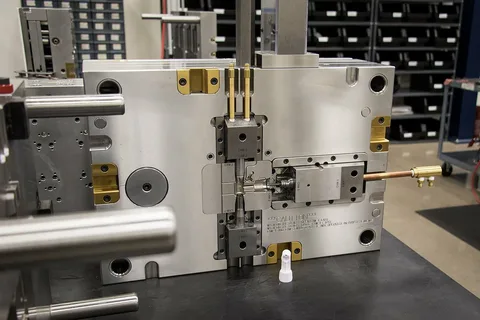Injection molding tech serves as the backbone of plastic production across nearly every industry. From automotive parts and household products to medical devices and electronics, the versatility of this technology enables manufacturers to produce precise, durable, and high-quality components at a mass scale. By injecting molten plastic into a custom-designed mold, this method ensures uniformity, reducing variability and human error in the final product.
Moreover, injection molding tech allows for the use of a wide variety of polymers, accommodating the physical and mechanical needs of different industries. Whether it’s flexible polyethylene for packaging or tough polycarbonate for safety equipment, this method offers unparalleled flexibility in material selection. This adaptability is why plastic production has become faster, more cost-efficient, and more consistent, making injection molding tech indispensable in today’s manufacturing world.
Cost Efficiency and High Output
One of the main reasons injection molding tech is crucial for plastic production is its cost efficiency in high-volume manufacturing. Once the mold is developed, the actual per-unit production cost is remarkably low. This makes it ideal for mass production scenarios where thousands or even millions of identical parts are needed. It reduces material waste, streamlines production timelines, and lowers overall manufacturing expenses.
In addition, the automated nature of injection molding machines means they can operate 24/7 with minimal human intervention. Advanced tech integrations like robotic arms and sensor-based quality checks further enhance productivity while reducing labor costs. These factors collectively allow manufacturers to scale up operations without a proportional increase in cost, solidifying injection molding tech as a cornerstone of economical plastic production.
Precision and Consistency in Product Design
Injection molding tech enables manufacturers to create highly detailed and intricate designs with excellent dimensional accuracy. Unlike other production methods, this technology can reproduce the same design with microscopic consistency, ensuring that every product coming out of the mold matches exact specifications. This is particularly vital for sectors like medical devices or aerospace, where tolerances are extremely tight and even the smallest deviation can lead to product failure.
The level of control provided by injection molding tech also supports complex geometries and textured finishes. This precision is achieved through advanced computer-aided design (CAD) and mold engineering techniques. Manufacturers can now simulate mold flows, detect potential defects, and optimize designs before the actual production begins. This not only improves the product quality but also minimizes trial-and-error processes, saving both time and resources.
Environmental and Material Efficiency
In today’s environmentally conscious manufacturing landscape, injection molding tech has emerged as a greener alternative. Modern machines are designed to use materials more efficiently, with very little waste generated during the process. Scrap plastic can often be ground up and reused, reducing landfill contribution and promoting a circular economy within the factory setting. Biodegradable and recyclable polymers are also increasingly being used, further enhancing the sustainability profile of this tech.
Additionally, energy-efficient molding machines and smart monitoring systems reduce the overall carbon footprint of the production process. Through innovations like electric servo-driven injection machines, manufacturers can achieve greater energy savings compared to traditional hydraulic systems. As the push for eco-friendly practices intensifies, injection molding tech provides a scalable and responsible solution to meet both economic and environmental goals in plastic production.
Innovation and Future-Proofing Manufacturing
Injection molding tech is not just about current efficiencies—it’s also a driver of innovation and future readiness in plastic manufacturing. With the integration of Industry 4.0 technologies such as IoT sensors, AI-based defect detection, and real-time data analytics, the injection molding process is becoming smarter and more autonomous. These advancements allow for predictive maintenance, reduced downtime, and more intelligent decision-making on the production floor.
The tech also supports hybrid approaches, such as combining traditional injection molding with 3D printing or over-molding techniques. These methods enable manufacturers to develop multi-material parts or prototype complex products faster than ever before. As global demand for customized, high-performance plastic components continues to grow, the adaptability and future-focused development of injection molding tech ensure it remains a vital force in plastic production for decades to come.
